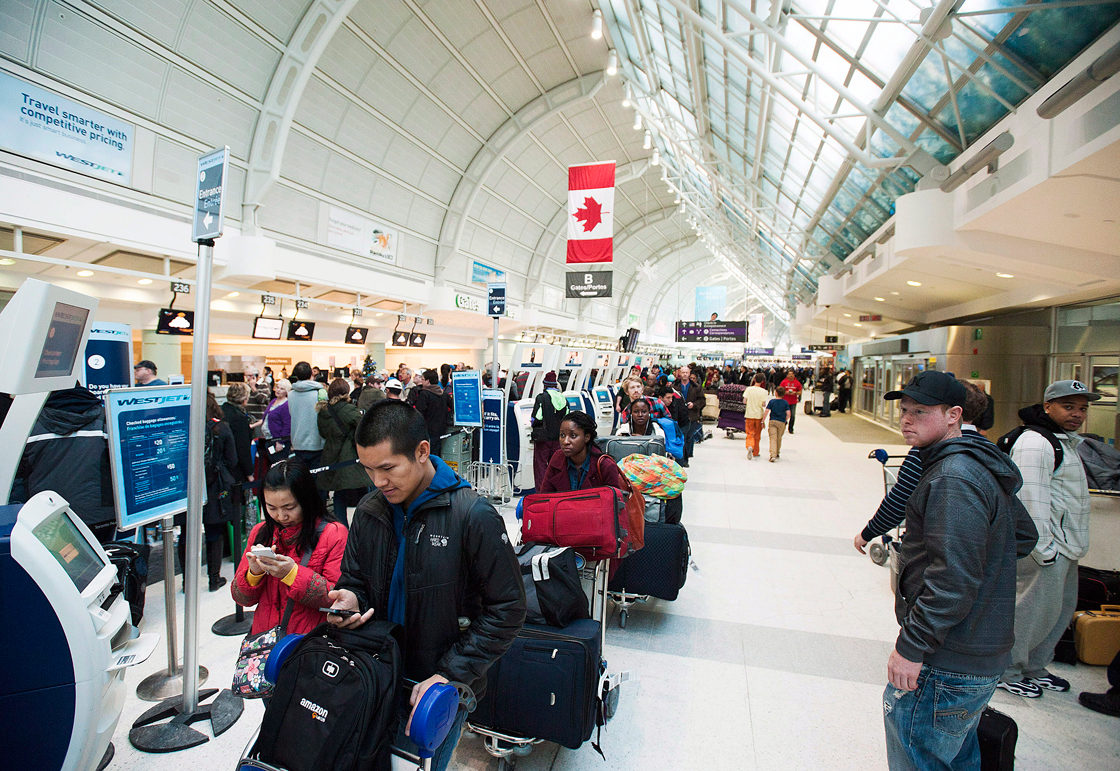The country’s second-largest airline warned Tuesday a big bump on jet fuel tax in the Ontario budget could drive more fliers toward U.S. airports, an outcome that could actually lower the amount of taxes collected by the government.

“It may well be that the Ontario government gets less tax because more people choose to fly out of Buffalo,” Gregg Saretsky, chief executive for Calgary-based WestJet said on a conference call.
Many Ontarians fly out of the western New York hub now to avoid higher Canadian airfares and taxes, experts note.
For those who stay, though, higher ticket prices await as WestJet and other carriers flying out of Pearson International Airport and other Ontario airports flow the increases on.
“Ultimately, who pays for that? Consumers,” Saretsky said. “It’s our job to keep our costs as low as possible and continue to provide value to our consumers, but those sorts of things don’t help.”
READ MORE: Deficit fears provoke ‘negative’ outlook for Ontario
The country’s most populous province faces a towering $12.5 billion deficit this year while credit agencies worry Ontario will be challenged to balancing its books longer term – something that could affect interest rates the province (and ultimately taxpayers) pays on its debts.
The Liberal budget, passed last week, introduced new tax measures to help address the fiscal imbalance. Among them is a provision to raise jet fuel taxes paid by carriers to 6.7 cents per litre by 2017, up from 2.7 cents now.
READ MORE: 5 Ontario budget items that will affect your pocketbook
WestJet says the new tax will add about $15-million in annual costs, which will be added onto airfare prices.
“We obviously understand the fiscal challenges Ontario is a having, but we think at the end of the day, raising taxes in that manner is an easy cash grab,” Saretsky said.
‘You might not notice’
Still, despite airlines’ grumblings, some experts suggest consumers aren’t likely to be subjected to big airfare increases. Moreover, they may not feel them at all.
“It will cause the ticket prices to go up but you might not notice it because it’s a small portion…of the fuel bill,” analyst David Tyerman of Canaccord Genuity told the Canadian Press on July 21.
For Air Canada, the country’s biggest carrier, the estimated $50 million in additional costs represents a fraction of the more than $11 billion it spends annually on fuel, salaries, currency fluctuations and other factors, said Tyerman.
WATCH: Ontario Finance Minister Charles Sousa defended the proposed aviation fuel tax hike to reporters at Queen’s Park Monday, saying he believed it would not hurt Ontario airport’s competitiveness.


Comments